Lipoprotein (a)
Learn about Lp(a)
Many people don’t have symptoms. You could have a high Lp(a) even if you have a healthy lifestyle and all other heart disease risk factors are controlled. Talk with your health care professional about screening if you have:
- Known family history of high Lp(a)
- Family or personal history of heart disease or premature cardiovascular disease
- Diagnosis of familial hypercholesterolemia (FH), an inherited condition that causes the body to poorly recycle LDL or bad cholesterol
What is Lp(a)?
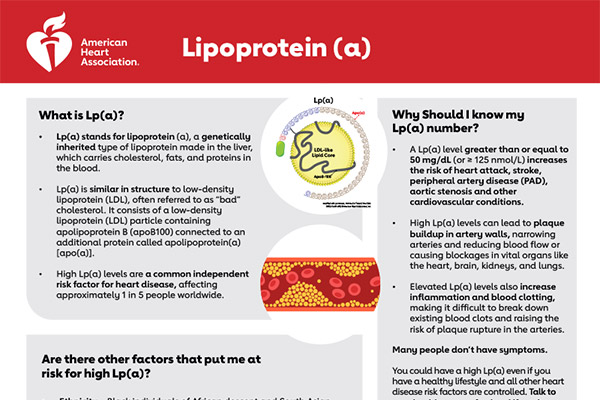
Understanding the Lp(a) Test
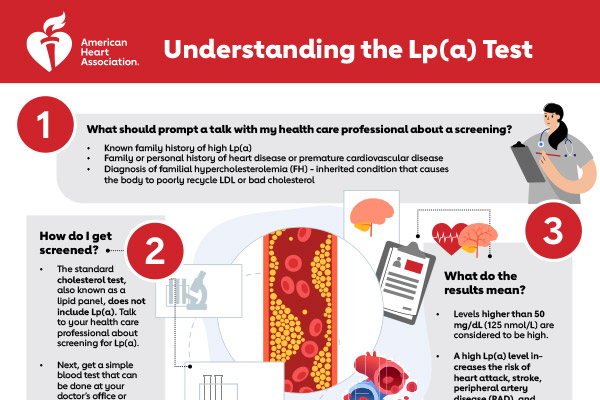
Understanding My Lp(a) Risk
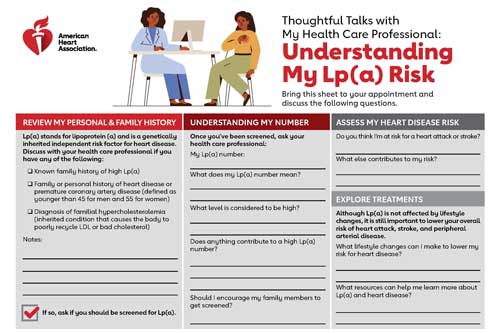
Cascade Screening
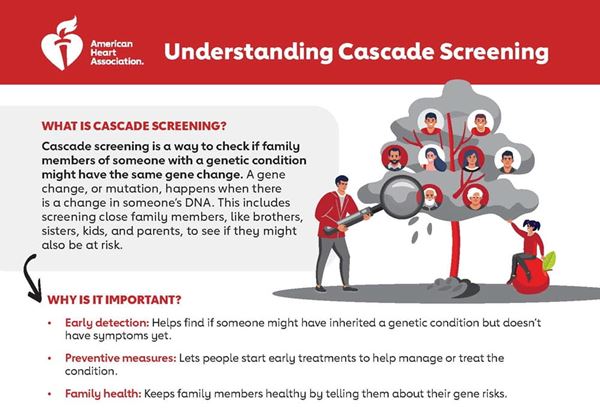
Lp(a) Myths Vs. Facts
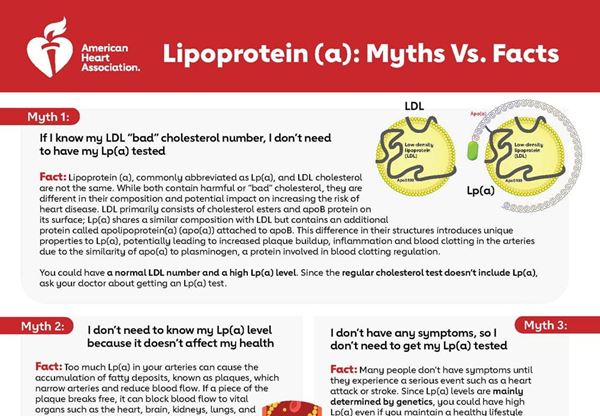
Understanding Your Diagnosis
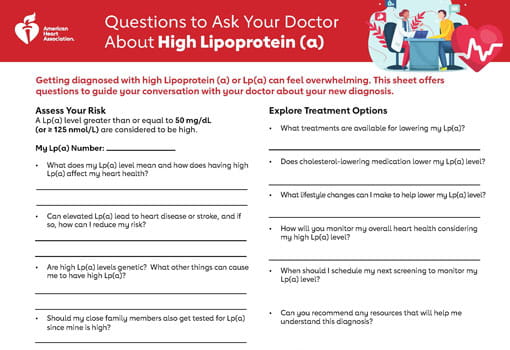
Games
Fact Check
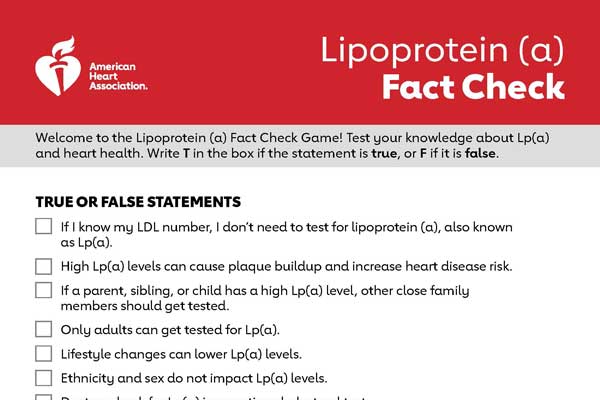
Match the Statement
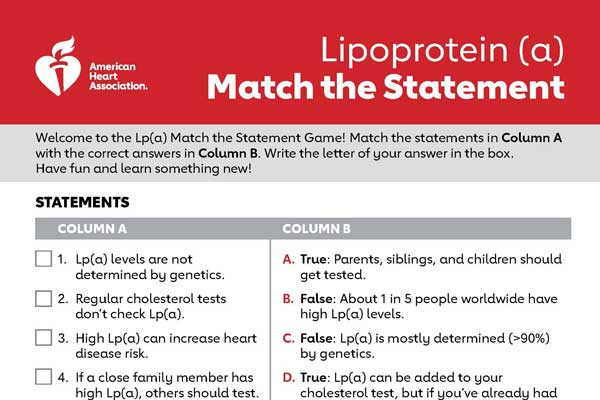
Word Search Challenge
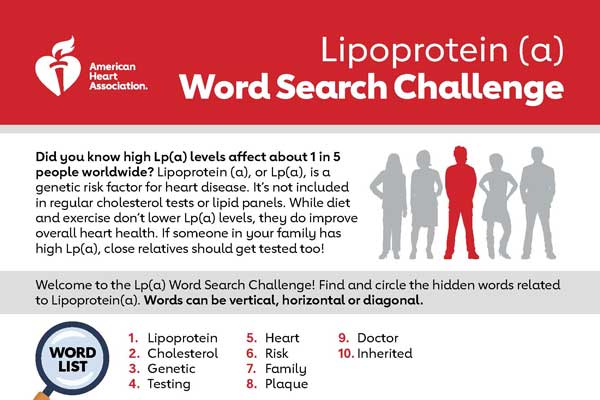
Lp(a) FAQ
Often referred to as Lp(a), lipoprotein (a) is a type of lipoprotein that is genetically inherited and in high levels is a common independent risk factor for heart disease.
About 1 in 5 people worldwide have high Lp(a).
Talk to your health care professional about screening if you have:
- Known family history of high Lp(a).
- Family or personal history of heart disease or premature cardiovascular disease.
- Diagnosis of familial hypercholesterolemia (FH), an inherited condition where the body poorly recycles LDL cholesterol.
Talk to your health care professional about ordering a simple blood test for you.
should I get tested?
Yes, if you have a known family history of high Lp(a), talk to your health care professional about getting a simple blood test ordered.
Greater than or equal to 125 nmol/L (or ≥ 50 mg/dL) equates to an increased risk of a heart attack or stroke.
Although Lp(a) is not affected by lifestyle changes, it is still important to lower your overall risk of heart attack and stroke including eating a healthy diet, being physically active, maintaining a healthy weight, stopping tobacco use and getting enough sleep. It’s also important to take medications as prescribed.
Many people don’t have symptoms. You could have a high Lp(a) and have all other heart disease related risk factors controlled.
How does Lp(a) impact my health?
Heart & Stroke Helper App
Patient Stories

Read Verónica's storyMy Lp(a) Story
I now know that Lipoprotein (a) is a silent risk health factor and that I need to be proactive.

Read Ceirra's storyThe 10th Anniversary Of My Triple Diagnosis
'You just had a heart attack' were not the words I expected to hear as a 14-year-old girl when I woke from my hospital bed.